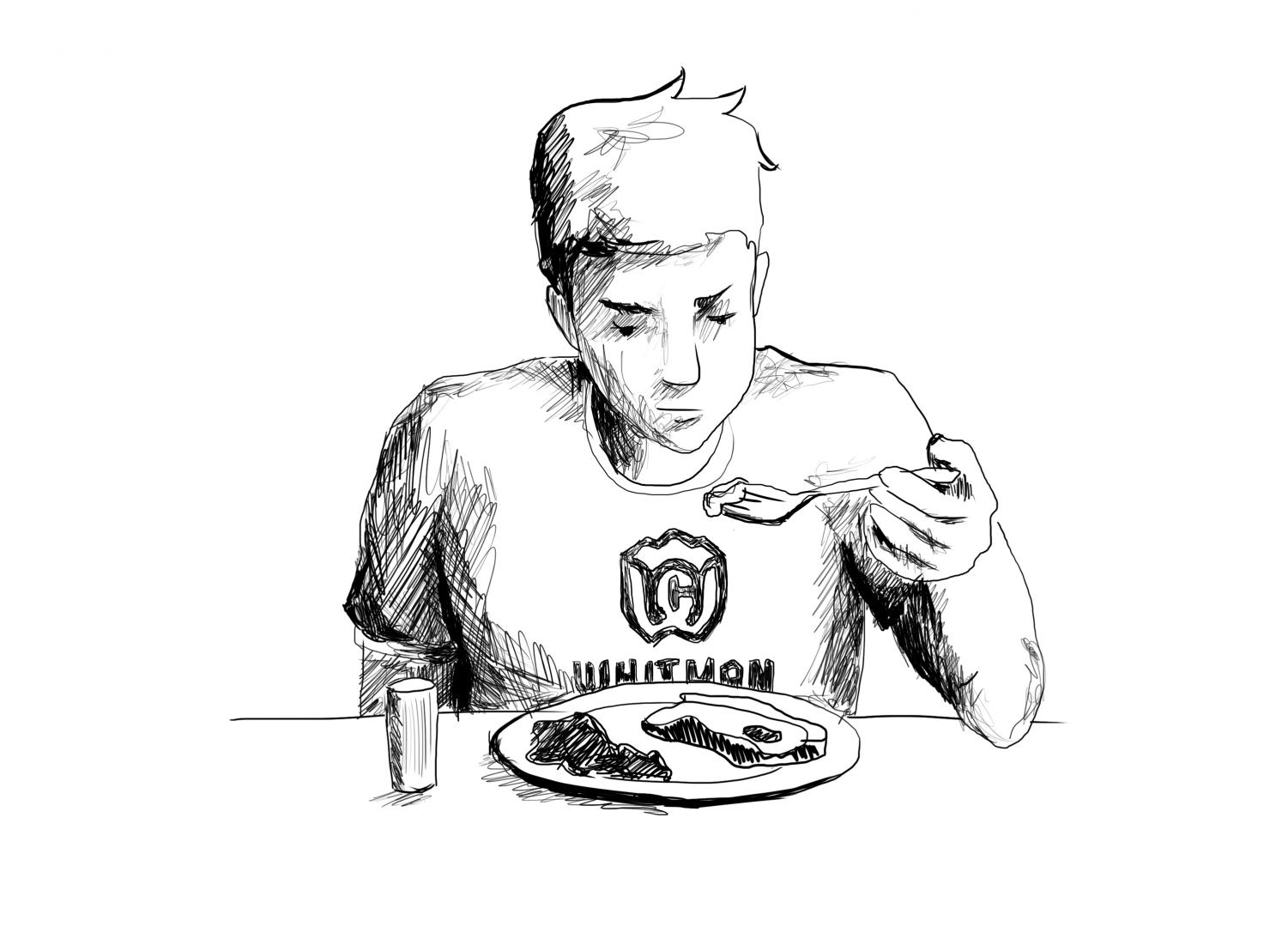When Big Eaters Can’t Get Big Eats
November 25, 2018
As the fall transitions into winter, volleyball nets and soccer goals come down to be replaced with basketball hoops and the spring sports players begin trainings and workouts.
Each sport requires different things of its players. For example, cross country requires runners to have amazing endurance while soccer players need to have speed. Regardless of what each individual sport demands of its participants, they all have one universal requirement: food.
“Certain sports focus on gaining weight or strength in the weight room, which is achieved in part by eating lots of food,” says sophomore baseball player Elliot Puttkammer-Saxen. “Upon making the baseball team, the coach told me my priority was to gain muscle mass. I went from a skinny 200 lbs. to a stronger 245 lbs. in the span of the last 14 months, fully utilizing the old buffet style dining at Prentiss and Jewett.”
For athletes on the meal plan, the controversial prices of the new dining hall have been getting in the way of the nutrition they need to perform.
“Even the larger meal plan only allows $22 dollars a day, and right now it is common for myself and my teammates to eat $30 worth of food in a single meal,” added Puttkammer-Saxen.
Makana Stone, a junior on the women’s basketball team, now lives off campus, but, like most students, spent her first and second year on the meal plan.

“On a typical day after practice I would eat four to five plates,” says Stone. “When I do eat at Cleveland, I could definitely benefit from larger portion sizes.”
The effects of not eating enough can be seen on anyone — tiredness, irritability and achy bodies are all signs of an unbalanced diet. In athletes, these effects are exacerbated due to them physically pushing their bodies to the limits several days out of the week.
“If I don’t eat enough before a practice I can get lightheaded and will usually just have little to no energy,” says Stone.
In order for Whitman Athletics and the campus as a whole to succeed this school year, we need to make sure everyone has access to not only enough food, but a healthy variety as well.
“Athletics aside, no college student should have to have an unbalanced diet because the quality of healthy food options is so high that prices are unreasonable,” advises Puttkammer-Saxen.







